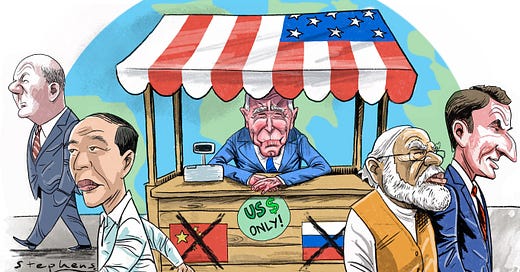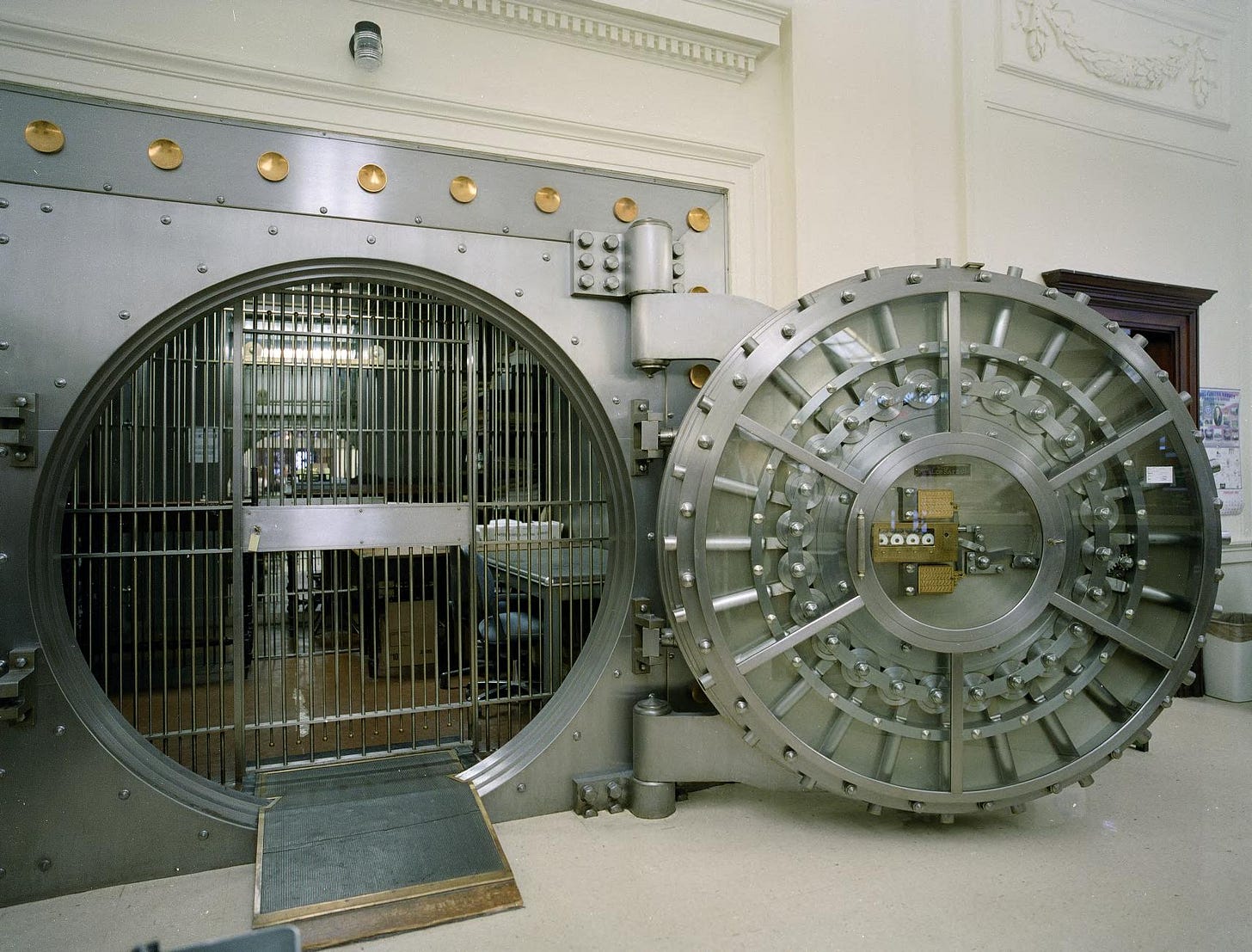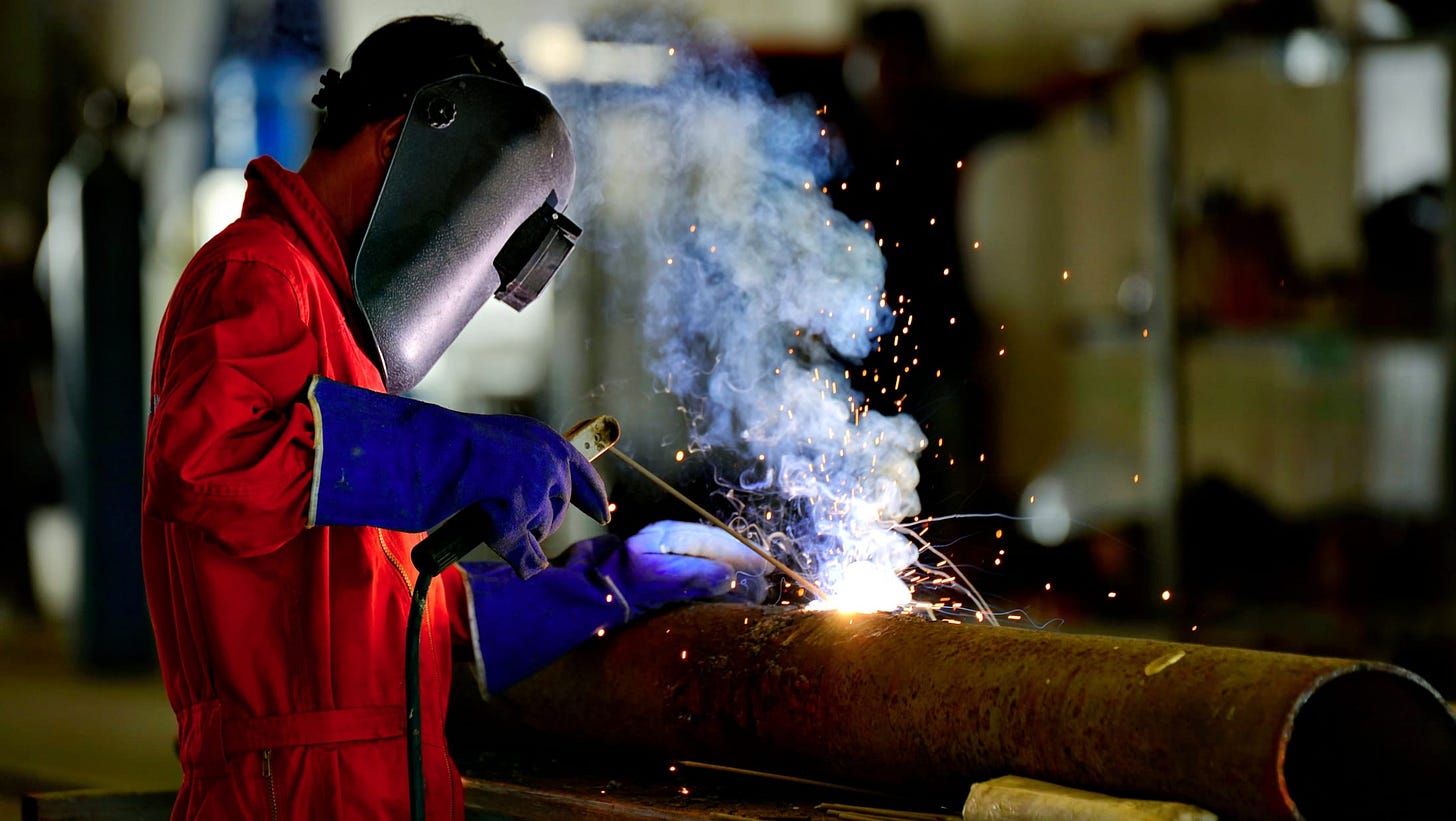I have previously written about the rise of the BRICS alliance (Brazil, Russia, India, China, and South Africa), which threatens to dethrone American economic power. This year, the BRICS added six new members: Argentina, Egypt, Ethiopia, Iran, Saudi Arabia, and the UAE. The last three of these countries are major oil producers, suggesting that the global Petrodollar system, whereby oil is traded primarily for U.S. dollars, is in peril. Saudi Arabia, for example, is open to accepting yuan for its petroleum. We are shifting towards a multipolar world.
This leaves the average Western reader with the question of how to respond. What actions are prudent in the face of a changing world order?
If I were to hazard a guess, I would pursue the following five steps:
Acquire multiple passports or residencies.
Open bank accounts in foreign nations.
Learn useful languages.
Develop profitable skills.
Invest in commodities and precious metals.
I will expand upon each of these points in the remainder of this article.
This article is not financial, career, or legal advice. This is merely a thought exercise; it is what I would personally do if confronted with the possibility of BRICS ascendance. If you have need of specific counsel, then speak to a certified advisor: one of those blokes with a CFA, CIM, CPA, JD, or whatever.
As always, if you gain value from my work, then please subscribe. Also, consider becoming a paid subscriber.
Acquire Multiple Passports or Residencies
The West — the United States, Canada, Europe, Australia, etc. — is becoming unbearable. If, as I forecast, the U.S. economy collapses and Leftist tyranny establishes itself, then a Westerner needs to escape. One way to do this is to possess multiple passports and/or residencies, allowing for greater global mobility.
Acquiring such citizenships and visas may be easy, depending on individual circumstances. For example, a man whose grandpa was born in Ireland can claim Irish citizenship through descent. Other countries offer citizenship or visas by investment. Yet other nations offer residencies by marriage.
Even if the West does not turn into a totalitarian nightmare, it never hurts to have options. As the world becomes multipolar, it is likely that Westerners will seek jobs in The East: Russia, China, Turkey, etc. Moving and getting work is always easier when one has the right passports.
Open Foreign Bank Accounts
If the West turns into an economic backwater, then the government may hike your taxes or confiscate your property to pay its creditors. To prepare for this requires holding assets outside of the financial system, and preferably outside of the West. This is where foreign bank accounts come in.
A number of countries, such as Switzerland, The Cayman Islands, Singapore, and The Seychelles offer offshore bank accounts. To open one involves sitting down with a good lawyer or financial advisor, who is familiar with the regulations regarding offshore banking. If you lose your assets in the West, then at least you can whip out your passport, access your foreign funds, and flee to safety to start a new life.
It is also worth considering crypto, particularly stablecoins, which can be stored outside of the financial system. However, Western governments are slowly clamping down on the on-ramps and off-ramps for cryptocurrencies.
Learn Useful Languages
This should be obvious. If the West deteriorates as the East prospers, then it is beneficial to know at least one Eastern language: Mandarin, Cantonese, Russian, Hindi, Arabic, etc. This opens up economic opportunities, even if a Westerner decides to remain in the West; for example, a Canadian can start a business importing goods from India or China. Ultimately, operating effectively within a multipolar world requires being multilingual.
Equally important is learning about other cultures. Most non-Western societies, for example, emphasize hierarchy. Referring to a senior person in an informal way, using their first name, may be looked down upon in Russia or India. Being overly friendly with strangers — as many Westerners are — is likewise looked upon with suspicion in Eastern countries.
Develop Profitable Skills
As artificial intelligence and robotics displace white collar workers (lawyers, journalists, professors, etc.), it is imperative to develop profitable skills. Trades like plumbing, welding, and carpentry will continue to be useful, and are transferable to any part of the globe. As the return to white collar jobs declines, the return to blue collar ones will increase.
Of course, there will always be a need for white collar workers, but if you want to work as a journalist after moving to, say, Russia, then you’d better have stellar Russian language skills! This is not necessarily the case with the skilled trades, or even certain computer-related talents. The key is to be able to adapt quickly.
Invest in Commodities and Precious Metals
The BRICS nations are commodity-driven, and gold may become the future BRICS reserve asset. While the West commits economic suicide by implementing carbon taxes and investing in unprofitable green technologies, China and Russia have continued to use fossil fuels to grow their economies. Commodities and precious metals will, in the long-term, rule the day.
Even if the BRICS fails to displace the United States (an unlikely scenario), it is still worth diversifying one’s portfolio. One top-performing investor, for example, allocates 19 percent to gold and 18 percent to commodities.
Conclusion
Yesterday, November the 11th, we commemmorated Remembrance Day, which recalls the end of World War I hostilities.
I personally remember that period for The Bolshevik Revolution in Russia, when tyrants staged a coup which ejected Czar Nicholas II from power. Subsequently, the Bolsheviks proceeded to slaughter all opposition — starting with the czar and his family.
When the revolution first took place in 1917, Russians went about their lives as though nothing had happened. For a while, they were okay. They bought, sold, ate, married, and lived. Nothing changed.
Then, one day, a communist official would show up at their door.
*Knock! Knock!
“Pack up your belongings immediately!” said the mustached, narrow-eyed official. “You have three hours to relocate to a small cottage down the road. Your house is being confiscated by The People to build an orphanage. You and your family do not need such a large dwelling.”
Given the direction of history, this is what will happen in the West, unless there is a miracle. It is important not to be alarmist about this possibility. Yet, it is also good to be prepared, knowing that the rise of the BRICS and the fall of the U.S. as a global superpower is a highly likely scenario. Over the next few decades, those who are best prepared to navigate a multipolar world will thrive in it.










